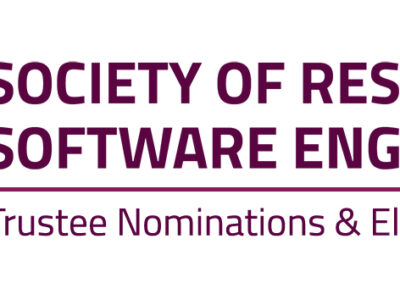NCVO Governance Review
As a young charity we are keen to ensure that we can run as effectively and efficiently as possible. To this end, we asked the National Council of Voluntary Organisations (NCVO) to undertake a review of our governance and operations practices.
During 2021, through a number of trustee surveys (including skills and diversity audits), trustee meeting observations, one-on-one interviews and an all-trustee workshop, the NCVO provided us with a report including a number of recommendations.
Before listing the recommendations, I wanted to pull out a few quotations from the report which reflect the hard work all the trustees up to this point have put in and give us confidence that we are on the right track:
Our overall reflection from our engagement with the Society is one of a board who have a strong and demonstrable commitment to good governance and improvements. There is a lot of governance ‘infrastructure’ in place already due to hard work of the trustees including code of conduct, trustee complaints and grievances policy.
The board want to know how it benchmarks against other charities. There is no straightforward response to this as all charities are at a different point. The code recognises this as it is a tool for continuous improvement for all charities. We would note, however, that we work with more established charities who do not all have basic policies such as code of conduct and role descriptions in place.
Most of the advice pertains to internal processes which, while they don’t necessarily directly contribute to our aims as an organisation, they give us a solid base from which we can work. The following is a summary of the recommendations we received. Many of which we have already put in place or are in the process of doing so, and all of which we are planning on implementing.
Recommendations
- Consider developing and implementing additional policies:
- Safeguarding
- Volunteer management (and a role description)
- Partnerships
- Fundraising, donations acceptance and refusal
- Environmental
- Health and safety
- Environmental
- Website terms and conditions of use
- That conflicted trustees move out of the room at the appropriate time during meetings.
- That agendas are timed and formally note whether an item is for decision, information or discussion.
- That consideration is given to re-balancing the board time away from reporting towards more strategic discussions e.g. include the use of a ‘consent’ agenda (where a decision is needed but is unlikely to be contentious, it is taken as having been made unless a trustee specifically requests a discussion in advance).
- That where there are items of significance, the minutes also capture the key points of the discussion.
- Consider extending the term for trustees and board officers to 3 years.
- Appoint a lead trustee for safeguarding.
- That as part of the strategic and operational planning (see below) that activities and work are analysed and those which could be dealt by or supported by non-trustees be explored and how the work across the trustee board should fairly be divided.
- That the board develops a short, medium term and longer term strategy and Values.
- Alongside this an operational plan and budget should be developed for the year setting out the outcomes and desired impacts, how these will be measured and the resources needed.
- That the board reviews and takes steps to ensure the financial sustainability of the Society.
- That the board reviews the grant process in light of the Charity Commission guidance.
- That the board considers establishing, and making formal delegations of authority to, committees and bringing in non-trustee members.
- That a volunteer management policy and role description be developed.
- Strengthen the induction to include a conversation between the new trustee and president (or mentor) before and after their first board meeting.
- Look for ways for the board to spend informal time together.
- Establish a training budget to support the recognition of the importance of investment in and support for continuous development.
- Introduce a cycle of board and individual reviews, developing a culture of continuous development and learning.
- That the board develops a partnerships policy taking into account the guidance.
- That the trustee conflicts of policy is refreshed to include conflicts of loyalty.
If anyone has any questions, please get in contact with us the governance subgroup at [email protected]






